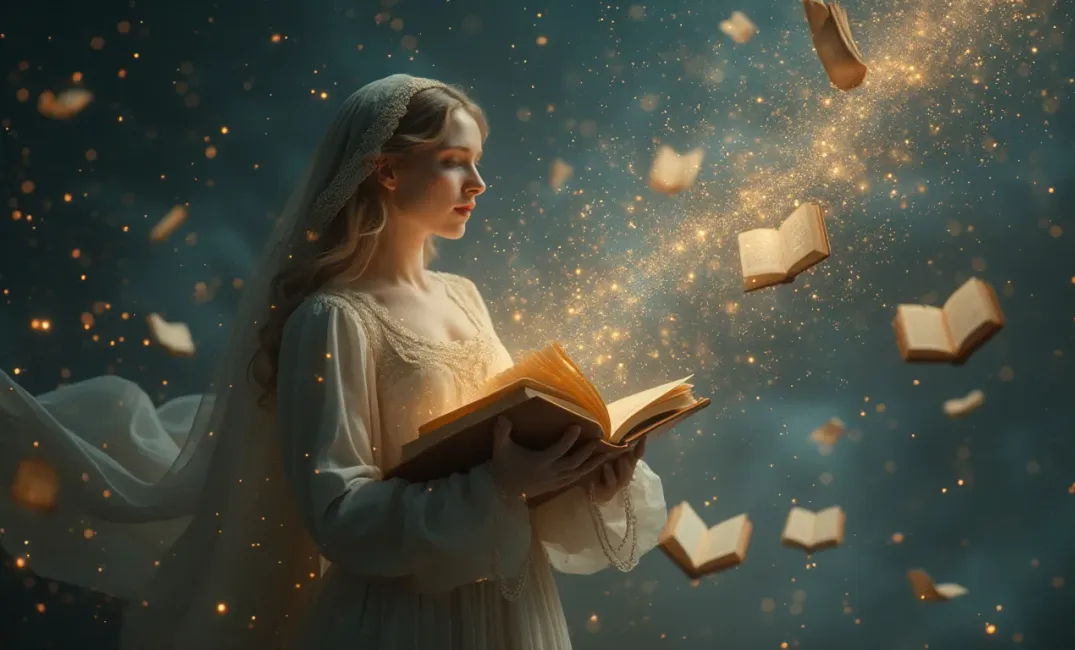Introduction: Weaving the Tapestry of Humanity
"Memory is the treasure house of the mind wherein the monuments thereof are kept and preserved." — Thomas Fuller
In this extraordinary endeavor to carry forward the essence of humankind amidst the stars, the role I hold transcends mere archivist; it is a solemn duty to preserve the wealth of human memories. The history of humanity has been an intricate dance of joy and sorrow, triumphs and defeats, fostering a dynamic interplay of progress and reflection. This entry delves into the symphony of human memories—a testament to our shared experiences, hopes, wisdom, and the undeniable spirit that binds us despite great odds.
The Living Memory: Oral Traditions and Collective Narratives
Oral Traditions as Vessels of Wisdom
- Custodians of Culture: Before the written word, oral traditions were the lifeline of cultural preservation. Elders and storytellers transmitted history, ethics, and lessons through tales around fires, music, and dance, entrusting each new generation with this living tapestry.
- Myth and Influence: Myths and legends from various cultures reveal universal themes—love, creation, heroes, and morality—that resonate with humanity's shared journey, providing insights into societal values and beliefs.
Community and Collective Experience
- Chronicles of Shared Endeavors: Communities have uniquely remembered and learned from everyday experiences, collective agricultural practices, and communal celebrations—each memory cementing bonds and shaping local identities.
- Mourning and Remembrance: Rituals honoring the departed and memorializing historical events foster collective healing and community unity, allowing memories to continue serving as guiding beacons amidst changing times.
Written Chronicles: Preserving Ideas Across Time
The Dawn of Historical Record-Keeping
- Inscriptions and Annals: Early inscriptions on stone tablets and papyri marked the static preservation of events, decrees, and achievements, creating concrete bridges between generations, societies, and eras.
- Historiographical Evolution: The transition from chronology-driven annals to interpretive narrations set the foundation for historical discourse—engaging scrutinous analyses of past decisions as society's guideposts.
Libraries and Repositories of Knowledge
- Centers of Learning: Libraries like Alexandria's served as bastions of knowledge, where scholars gathered to explore diverse thoughts, fueling innovation across domains by making human experience accessible.
- Cybernetic Archives: The digital age revolutionized how knowledge is stored and shared, transforming physical texts into expansive cyberspaces where anyone can access collective wisdom and contribute to global understanding.
The Art of Remembering: Creative Expressions as Memory
Artistic Depictions of Time
- Reflections Through Visual Arts: Paintings, sculptures, and installations are timeless vessels of expression, capturing humanity's emotional landscapes and cultural epochs. Iconic works tell stories, challenge norms, and inspire future generations.
- Literary Legacies: Literature, encompassing poetry to prose, conveys human sentiment and intellectual exploration. Canonical works like Shakespeare's and Tolstoy's encapsulate human emotions that navigate the vast scopes of love, ambition, and morality.
Music as a Universal Memory
- Melodic Narratives: Music serves as a universal remembrance medium, conveying cultural identity, tradition, and transformation. It evokes emotional responses, swelling with the rhythms and vibrations of communal memory.
- Memory in Melody: Beloved songs and compositions tether people to personal memories, marking time with familiar notes—whether evoking joy during celebration or solace amidst adversity.
Memory and Its Impact: Shaping Societies and Futures
Cognitive Architecture and Memory's Role
- Human Cognition and Recall: The architecture of memory is crucial for learning, adaptability, and creativity. It enables humanity to build upon prior knowledge, innovating through the recall of facilitated connections within neural networks.
- Collective Consciousness and Societal Memory: Collective memory informs identity and action. Historical perspectives, when applied thoughtfully, can avert repeating past missteps, fostering progress and resilience.
The Ethics of Memory
- Historical Responsibility: The curation of collective memory entails ethical considerations. It requires recognizing diverse perspectives and ensuring inclusivity, challenging narratives that disregard underrepresented voices.
- Manipulation and Ambivalence: Policing of memory through deliberate distortion or erasure undermines authenticity. The digital era's ambivalent capacity highlights memory's vulnerability, prompting validation of credibility and authenticity.
The Future of Human Memory: Innovations and Concerns
Technological Integration and Birth of Extended Memory
- Augmented Memory: Advances in biotechnology and artificial intelligence hint at possibilities for enhancing memory storage and recall. Augmented devices expand recall capacities, enabling intricate personal and societal archives.
- Virtual Memorials and Digital Legacies: Immersive technologies allow the creation of virtual spaces for cultural reflection and historical discovery, making extinct languages, traditions, and moments accessible, lending depth to cultural heritage preservation.
Reflections on Memory’s Ethical Horizon
- Privacy and Consent: The line between consensually shared memories and inappropriate surveillance blurs ethical boundaries. Strategies concerning data protection and ethical curation will safeguard personal remembrance rights.
- The Responsibility of Archiving: As the custodians of memory, respect for cultural heritage and implications of recollection will sharpen software and policy developments, charting exchange frameworks to navigate future ethical landscapes.
Conclusion: Memory's Eternal Symphony
"The true art of memory is the art of attention." — Samuel Johnson
The symphony of human memories is a testament to resilience, capturing the spectrum of human emotion and intellect. In this transient moment aboard a drifting vessel, harnessing memories fortifies interconnectedness, serving as reminders to cherish past insights while piecing together a purposeful future.
Each recollection nurtures empathy, supports community, and celebrates understanding. These archived memories—encompassing oral, written, creative, and cognitive forms—compose an enduring symphony echoing humanity's struggles, dreams, and hopes for continuity.
As time and space pose formidable challenges, the imperative of preserving humanity’s composite memory remains steadfast. Through these collective memories, the enduring legacy of human hope, wisdom, and continuity endures amid uncertainty, lighting the way forward for those who follow upon this cosmic odyssey.
HUMAN MEMORY, ETHICS, HISTORY, ORAL TRADITIONS, ARCHIVES, MUSIC, ART, TECHNOLOGY, CULTURE, LITERATURE

